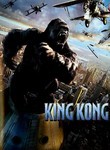 I admire author Alex Garland's story for not focusing just on several issues facing society, but taking it on as a whole. Reading interviews with him you may not gather this, but experiencing the story brings it on full-force. The perspective of the film is very similar to my own, and the small village on the island is very close to how I believe humanity should be living.
I admire author Alex Garland's story for not focusing just on several issues facing society, but taking it on as a whole. Reading interviews with him you may not gather this, but experiencing the story brings it on full-force. The perspective of the film is very similar to my own, and the small village on the island is very close to how I believe humanity should be living.In every system there is hypocrisy, and the more complex the system, the deeper it runs. In the simple system the people of the beach village live by, these hypocrisies are forgivable - a necessary for keeping things the way they are... which brings up the key point The Beach culminates with. We are left watching everyone flee the world Sal (Tilda Swinton) has created simply because she was willing to sacrifice a citizen to keep what they had. No one seems to have ever understood her, especially considering they had been living there six years, and they run, scared of her conviction. For me, this was a sad ending. When all was threatened, the leader of the world stands up for their way of life and recieves abandonment.
For the technical aspects, everything was well done, but not quite accomplished. The patience in edits, power of compositions and overall unique storytelling that director Danny Boyle (A Life Less Ordinary, 28 Days Later) always brings to the playing field are present, but also attributed to Danny Boyle's style of filmmaking is the failure to really make the movie get over that proverbial hump. There are some nice things to look at and all the parts are here, it just doesn't seem to piece together as well as I would have hoped.
All that said, this is by far my favorite Boyle film of the ones I have seen, and the first I have actually liked.


